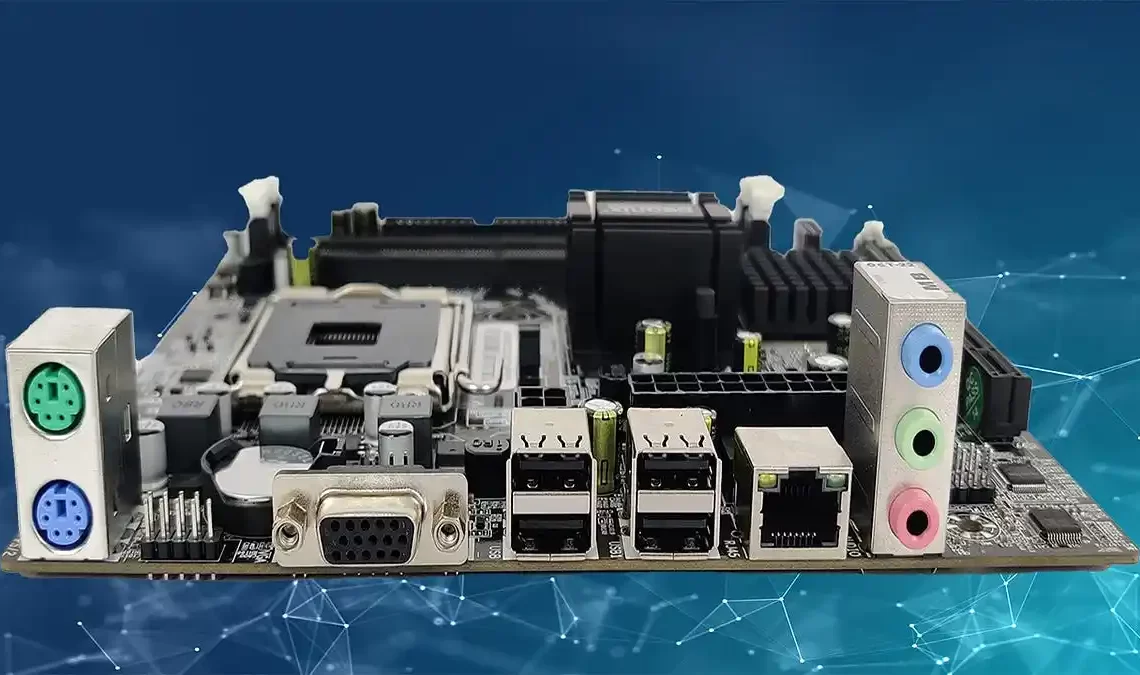
When building a custom computer, choosing the right motherboard is crucial to ensuring that all components work together seamlessly. Here are some tips and recommendations to help you choose the best motherboard for your computer:
- Determine your budget Motherboards can range in price from around $50 to over $1,000. Determine how much you are willing to spend before starting your search.
- Decide on the CPU socket The CPU socket on the motherboard should match the CPU you plan to use. For example, if you plan to use an Intel processor, you’ll need a motherboard with an LGA socket.
- Check compatibility with other components Make sure the motherboard you choose is compatible with the other components you plan to use, such as the graphics card, RAM, and storage devices.
- Consider the size of the motherboard Motherboards come in several sizes, including ATX, micro-ATX, and mini-ITX. Make sure the size you choose fits your case and offers the number of expansion slots you need.
- Look for features you need Consider the number of USB ports, audio jacks, and other features you need. For example, if you plan to use multiple graphics cards, look for a motherboard with multiple PCI-E slots.
- Research the brand and read reviews Research the brand and read reviews from other users to ensure the quality and reliability of the motherboard.
Some recommended motherboard brands include ASUS, MSI, Gigabyte, and ASRock. For gaming builds, look for motherboards with features such as overclocking capabilities and built-in Wi-Fi.
Overall, choosing the best motherboard for your computer requires careful consideration of your budget, CPU socket, compatibility with other components, size, and necessary features. By taking the time to research and compare options, you can find the perfect motherboard to ensure your custom computer runs smoothly and efficiently.
FAQS
- What is a motherboard? A motherboard is the main circuit board in a computer that connects all the components together, such as the CPU, RAM, and storage devices.
- What is the importance of choosing the right motherboard? Choosing the right motherboard is crucial to ensure that all components work together seamlessly and to achieve optimal performance from your computer.
- What should I consider when choosing a motherboard? When choosing a motherboard, you should consider your budget, CPU socket, compatibility with other components, size, and necessary features.
- What is the difference between ATX, micro-ATX, and mini-ITX motherboards? ATX motherboards are the standard size and offer the most expansion slots, while micro-ATX and mini-ITX motherboards are smaller and offer fewer expansion slots.
- What is the difference between LGA and PGA sockets? LGA sockets have the pins on the motherboard and the contacts on the CPU, while PGA sockets have the pins on the CPU and the contacts on the motherboard.
- What is overclocking? Overclocking is the process of increasing the clock speed of the CPU and other components to achieve higher performance. This requires a motherboard with the necessary features and cooling capabilities.
- What is the importance of compatibility between the motherboard and other components? Compatibility ensures that all components work together seamlessly and that you can achieve optimal performance from your computer.
- What are some common features to look for in a motherboard? Common features to look for in a motherboard include multiple PCI-E slots for graphics cards, built-in Wi-Fi, and overclocking capabilities.
- Can I upgrade my motherboard in the future? Yes, it is possible to upgrade your motherboard in the future, but it may require upgrading other components as well.
- What are some recommended motherboard brands? Some recommended motherboard brands include ASUS, MSI, Gigabyte, and ASRock, but there are many other reputable brands to consider as well.